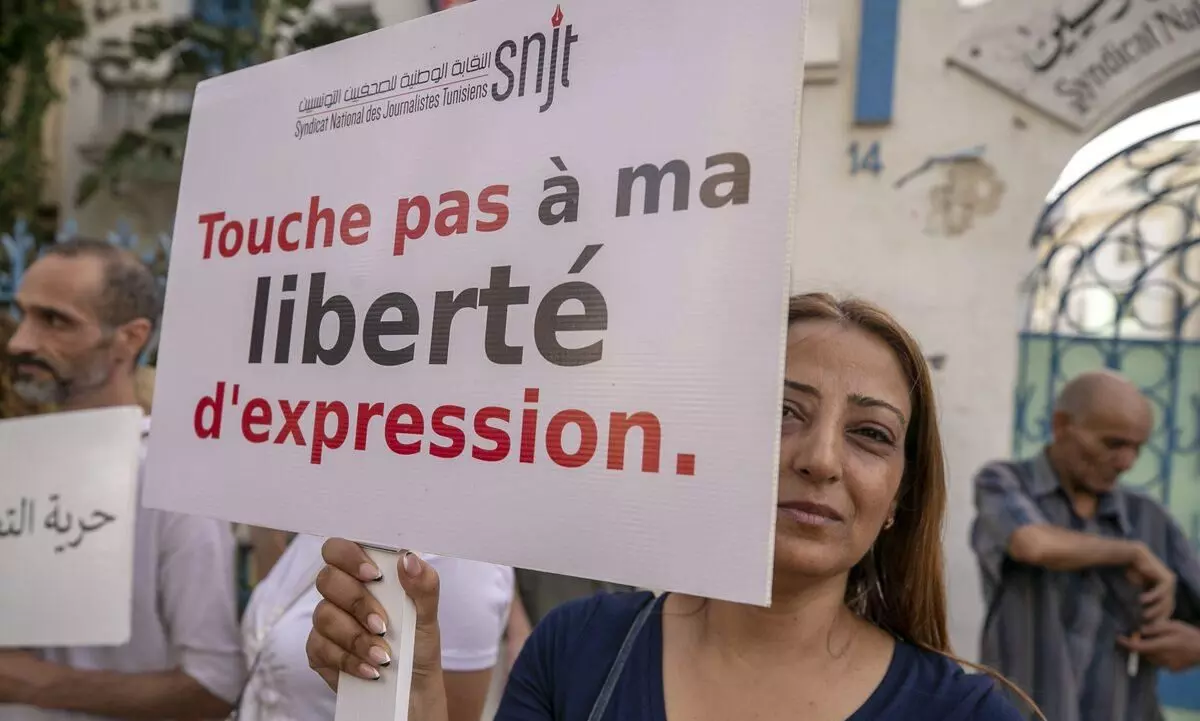
Tunisia jails 2 journalists for criticising government
text_fieldsProtester with placard reading, "Don't touch my freedom of expression".
Tunis: Two TV and radio journalists were sentenced to one year of prison in Tunisia after charging them for criticising the government for its programmes on social networks. A Tunisian court sentenced Borhane Bsaïs and Mourad Zeghidi to six months imprisonment for disseminating "fake news" and an additional six months for "making false statements with the aim of defaming others", in reference to Tunisian President Kaïs Saied, court spokesperson Mohamed Zitouna said.
The sentences come less than two weeks after both were arrested. They are among a broader group of journalists, activists and lawyers charged under Decree 54, a law criminalising the dissemination of "fake news" aimed at harming public safety or national defence.
The law, passed in 2022 to fight cybercrime, has been widely criticised by rights advocates who say the offences are vaguely defined and are being used to crack down on the president's critics.
Both Bsaïs and Zeghidi denied the allegations. In court, they referred to laws protecting freedom of expression that Tunisia enshrined after its 2011 revolution when it became the first country in the Middle East and North Africa to topple a longtime dictator. Both said they were simply doing their jobs, analysing and commenting on political and economic developments in Tunisia.
"I am neither for nor against the president. Sometimes, I support his choices; sometimes, I criticise them. It's part of my job," Zeghidi said.
Bsaïs, host of the radio show "Emission Impossible" ("Impossible Programme" in English), was accused of undermining the president on the air and in Facebook posts made between 2019 and 2022. It's unclear why authorities targeted old posts like his as they pursue a growing number of Saied's political critics.
He defended his opinions and, in court, objected to being brusquely arrested last week "like a dangerous criminal".
The trial has drawn international condemnation and sparked criticism in Tunisia, where many journalists gathered in front of the court in a show of support.
"We are all on provisional release because any journalistic work can give rise to prosecution," Zied Dabbar, president of Tunisia's National Journalists Syndicate, said of Decree 54. He said 39 journalists have been prosecuted under the law this year.
Saied has faced criticism for suspending parliament and rewriting the constitution to consolidate his own power three years ago. Critics have spoken out against the government's approach to politics, the economy, and migration in the Mediterranean over the years.























